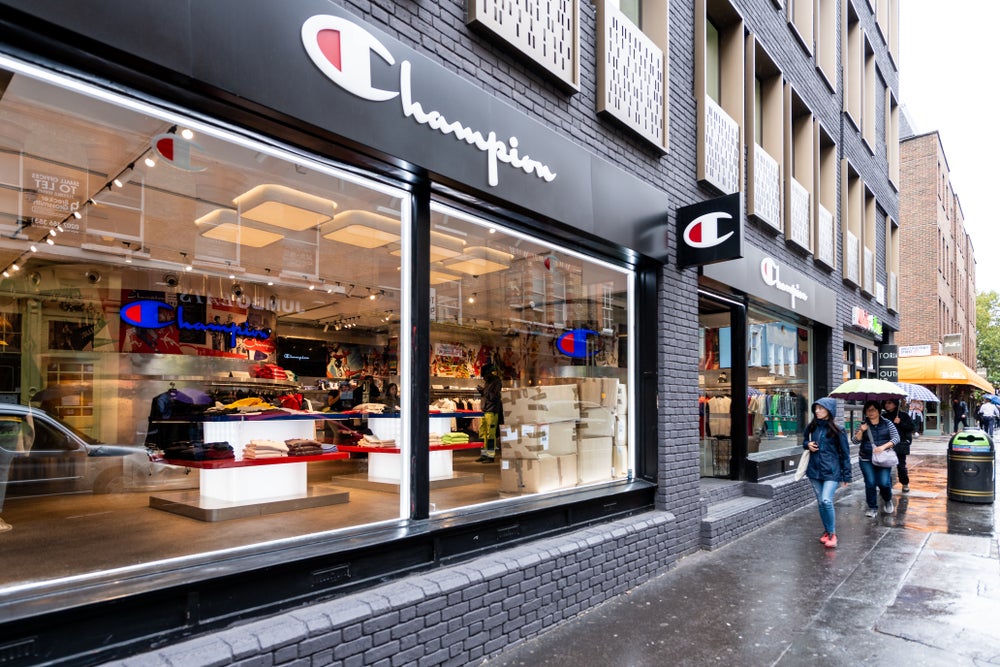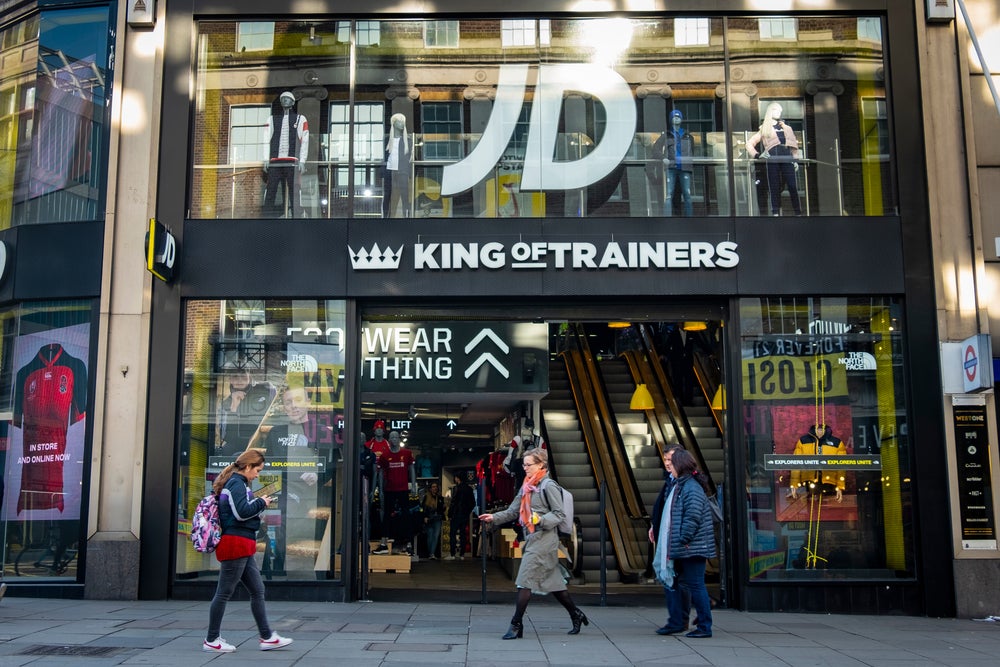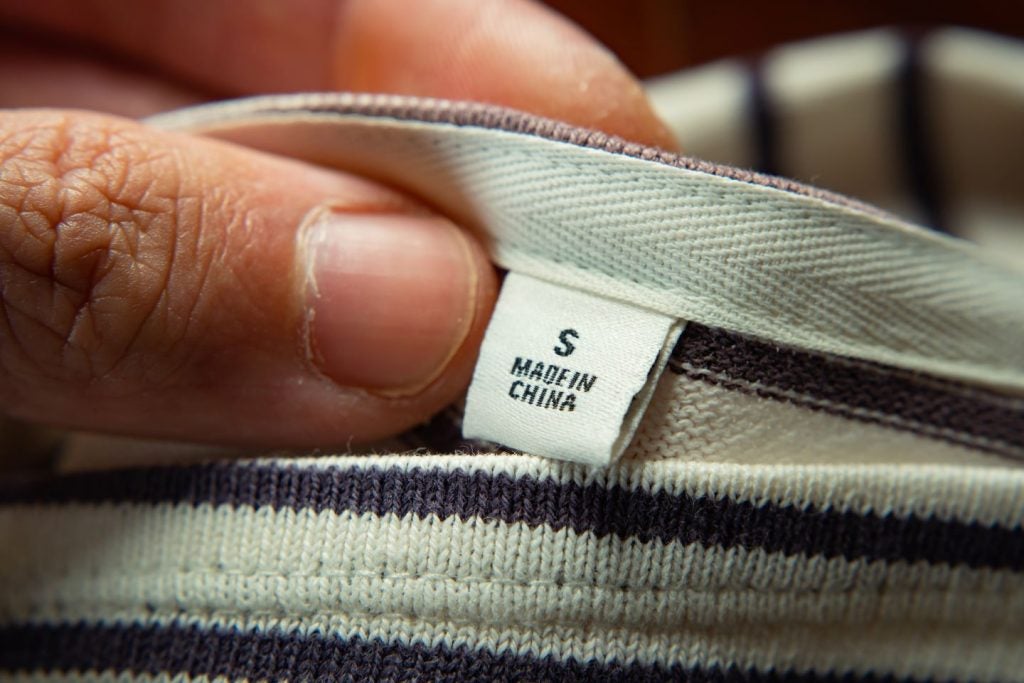
In the wake of a comprehensive strategic review prompted by a year of lacklustre performance attributed to substantial debt, US apparel company HanesBrands which owns Hanes, Champion and Wonderbra, is mulling options for its Champion brand.
Inside the HanesBrands’-Champion story
The primary objective of the review by the Hanes and Wonderbra owner is to consider routes of optimising shareholder value which may or may not result in a sale of the brand.
Steve Bratspies, the CEO of HanesBrands, pointed to the company’s strategy of using well-known brands and its competitive strengths to boost growth and profits quickly while simplifying and concentrating its operations.
He added: “As the board pursues this review of strategic options with the support of our advisors, our team remains focused on executing across our operations, continuing to serve our customers and consumers globally and advancing our initiatives to drive revenue growth, margin improvement and greater cash flow.”
At the time HanesBrands already owned Champion in the Americas, Asia and Australia and had recently purchased the Champion business from the group’s licensee in Japan.
How well do you really know your competitors?
Access the most comprehensive Company Profiles on the market, powered by GlobalData. Save hours of research. Gain competitive edge.

Thank you!
Your download email will arrive shortly
Not ready to buy yet? Download a free sample
We are confident about the unique quality of our Company Profiles. However, we want you to make the most beneficial decision for your business, so we offer a free sample that you can download by submitting the below form
By GlobalDataIn 2020, the company launched its C9 Champion athletic exclusively with Amazon Fashion worldwide as part of a multiyear agreement following the end of a long-term deal with Target Corp. It marked the first time the C9 Champion product line would be sold globally.
The Champion trademark was originally sold to HanesBrands for $90m back in 2022, by Keds a subsidiary of footwear company, Wolverine Worldwide. Under the agreement, Wolverine Worldwide retained a perpetual license to continue using the Champion trademark on certain footwear, including the Keds Champion sneaker that had been a mainstay of its Keds brand for decades.
But Hanesbrands has recently experienced a series of negative quarters, most recently booking a loss of $418m compared to an income of $68m in its fourth quarter results in February 2023, triggering a letter from investment firm and shareholder Barington Capital to board chairman, Ronald L. Nelson in early August, urging “immediate and decisive actions to create long-term value for shareholders.”
Notably, Barington said it felt compelled to step in as “HanesBrand’s poor execution and performance under its leadership had destroyed substantial shareholder value and left the company in a dire situation.”
In his letter Barington’s chairman and CEO James Mitarotonda said that in order to reverse the downward spiral in HanesBrands’ stock price which had declined by –51.6 % in the last year, the company had to prioritise cash generation and debt reduction, alongside evaluating fresh leadership and board members who can effectively execute these performance-enhancing strategies.
Here’s why the deal matters
The shareholder pressure to “get its house in order” so to speak, makes it unsurprising that Hanesbrands is looking to offload Champion, asserts GlobalData retail analyst Neil Saunders.
“Hanesbrands has been struggling for a while and is being dragged down by excessive debt,” he notes. “As such, it was always going to have to make some kind of move to sort out its financials.”
While the letter prompted Hanesbrands to reiterate its commitment to positive growth, outlining a clear plan to deliver sustainable value creation for shareholders through its Full Potential plan, it would appear that stringer action was needed and Champion could be the way to unlock some of those opportunities.
But Pippa Stephens, apparel analyst at GlobalData, suggests while the removal of Champion from its portfolio will help HanesBrands boost its top lines, it has to make improvements to its other” fascias to fully secure its recovery.”
In a sentiment shared by Barington Capital’s Mitarotonda who told Just Style that whilst the separation of the Champion business makes strategic sense, it is critical the company achieves appropriate value for the brand, despite its recent performance.
“We will continue to closely monitor further developments and urge Hanesbrands to rapidly pursue all opportunities to create long-term shareholder value.”
Key takeaways for the fashion industry
Saunders notes that while Champion could potentially be attractive for brand conglomerates such as Authentic Brands or retail e-commerce ventures, he’s hard-pushed to believe they would “want to pay a full price for Champion.”
Whilst there is no guarantee that HanesBrands will sell Champion, Saunders believes that Champion is one of the easiest labels to sell off and monetise within the company’s brand division.
“If HanesBrands wants to raise funds quickly to pay down debt then Champion is likely to be the brand that the company sacrifices,” he said.
Saunders makes clear that this scenario is dependent on a buyer being found which he says in this market is going to be difficult and could result in the review concluding that HanesBrands should retain the brand and try to grow it instead.
The story of the modern business world is one marked by unpredictability of the economy, consumer preferences, or the shifts in supply chain dynamics. Consequently, many find themselves at a crossroads, compelled to reassess their business operations to not only survive but thrive in this dynamic environment.
Strategic reviews have emerged as essential tools for businesses seeking to turn the tide and chart a new course forward.
In August, Finnish sustainable fibre producer Spinnova announced a strategic review aimed at generating positive cash flow generation in a smaller timeframe as it appointed its new CEO Tuomas Oijala, who confirmed an “expected” drop in half-year profit on the back of “ramping up joint venture operations and increased personnel costs.”
In the same year, UK high street department store John Lewis launched a strategic review of its business following a sull-year profit tumble of 23% year-on-year.
Our signals coverage is powered by GlobalData’s Thematic Engine, which tags millions of data items across six alternative datasets — patents, jobs, deals, company filings, social media mentions and news — to themes, sectors and companies. These signals enhance our predictive capabilities, helping us to identify the most disruptive threats across each of the sectors we cover and the companies best placed to succeed.







